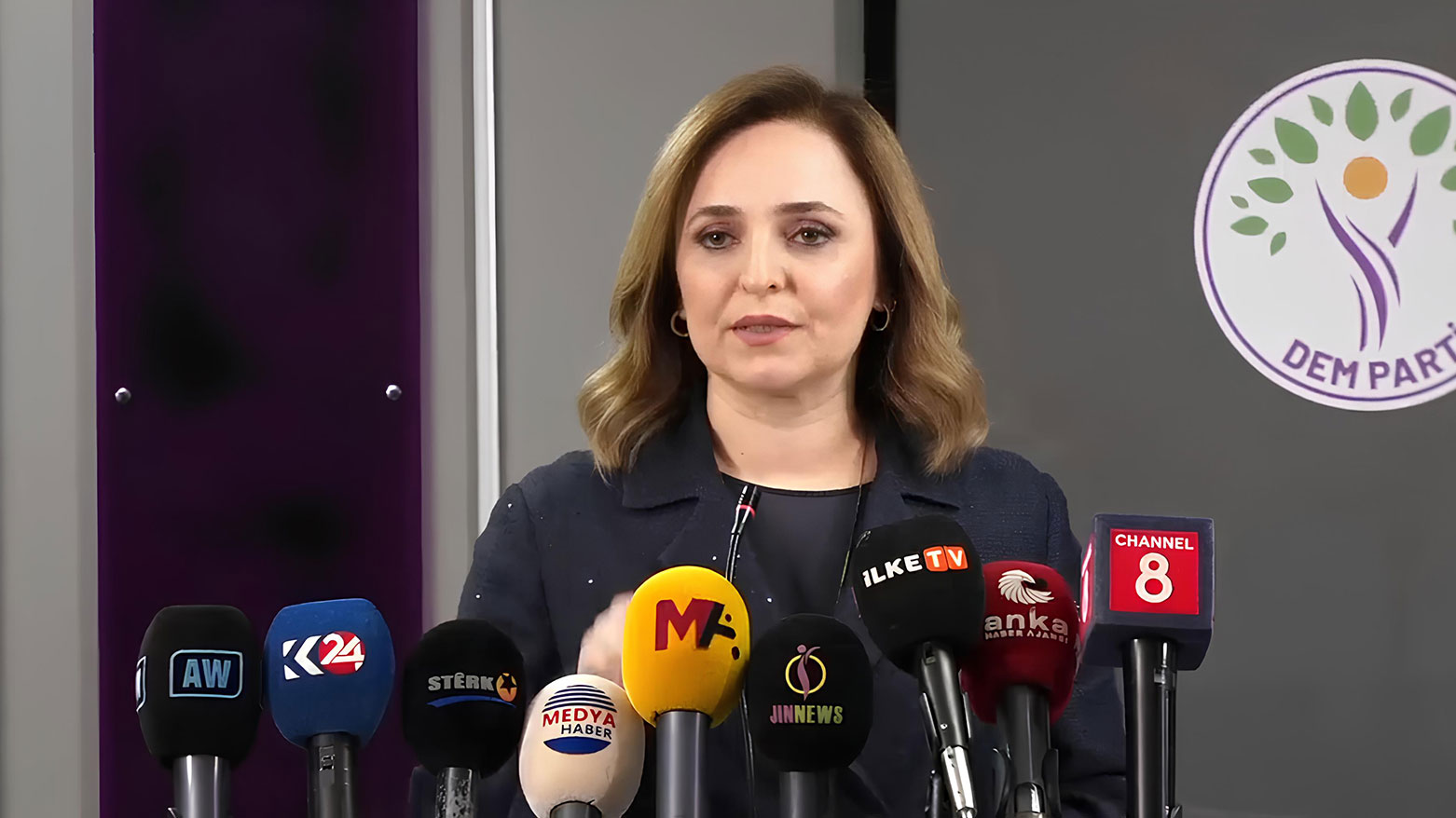DEM Party Criticizes Lack of Progress in Peace Process, Calls for Legal Reforms
“The parliamentary commission will open a new path and can resolve a historic political and democratic issue,” Dogan stated.

ERBIL (Kurdistan24) — The Peoples’ Equality and Democracy Party (DEM Party) on Friday criticized the Turkish government for what it described as a lack of genuine engagement in the ongoing peace process, despite what it said were positive steps taken by the Kurdistan Workers’ Party (PKK).
Speaking at a press conference in Ankara, DEM Party spokesperson Aysegul Dogan said the parliamentary peace process commission has collected opinions from various political and social groups and is working responsibly to address “a historic political and democratic issue.”
“The parliamentary commission will open a new path and can resolve a historic political and democratic issue,” Dogan stated.
She highlighted the need for comprehensive legal reforms, noting that the current phase requires legislation that aligns with efforts toward peace and democratic resolution.
Dogan argued that the PKK had made “positive contributions” by withdrawing its forces from North Kurdistan (southeastern Turkey) and taking steps toward disarmament. However, she criticized Turkish authorities for failing to respond with the corresponding measures.
“People don’t know what’s happening in the process,” she said, calling for greater transparency.
The spokesperson also referred to the situation of imprisoned PKK leader Abdullah Ocalan, stating that Nationalist Movement Party (MHP) leader Devlet Bahceli has on several occasions suggested that the parliamentary commission visit Imrali Prison to meet with Ocalan. There has been no official indication from the government regarding the acceptance of such a request.
The peace process, aimed at ending the decades-long conflict between Turkey and the PKK, has remained stalled for several years, with both sides frequently trading accusations over the lack of progress.
The current peace process was initiated after a declaration from the PKK, which announced its dissolution and an end to its decades-long armed struggle following a call from its imprisoned leader, Ocalan. The PKK’s withdrawal marks a pivotal escalation from political statements to tangible military action, significantly raising hopes for a durable resolution.
Analysts suggest the ball is now firmly in the Turkish government’s court. The unilateral disarmament and withdrawal by the PKK and its affiliates have created an unprecedented opportunity for peace. However, the process remains in a delicate early stage, with Ankara yet to publicly outline its own reciprocal legal and constitutional reforms demanded by Kurdish political movements.
The success of this initiative is viewed as critical not only for ending a conflict that has claimed tens of thousands of lives but also for reshaping Turkey's domestic politics and its international relations.